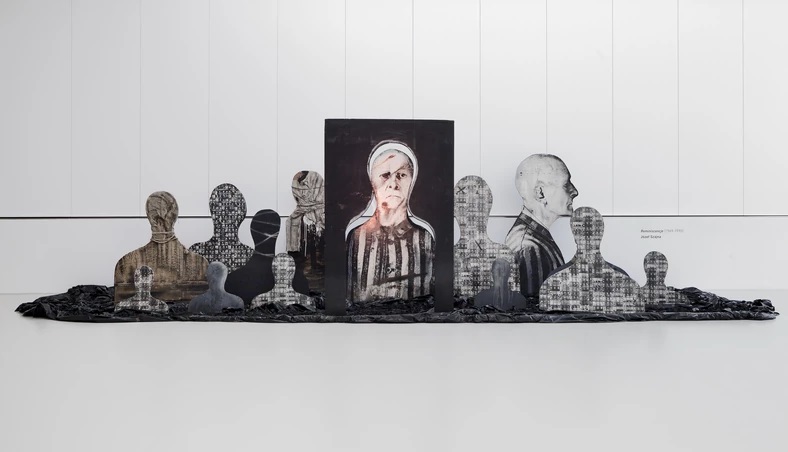In commemoration of the 100th anniversary of the birth of Józef Szajna, the painter, stage designer and the founder of the theater, the Silesian Museum in Katowice organized the exhibition “100 × TeArt. Józef Szajna’s Freedom”. The museum has gathered 100 works, giving the artist the floor, presenting his works (scenography designs, paintings, installations) and extensively quoting his statements.
100 × TeArt. Józef Szajna’s Freedom “is the largest exhibition so far devoted to this outstanding artist. Due to the drama of Ukrainians who experience unimaginable hostilities as a result of Russian aggression, the exhibition takes on a unique dimension. Its subject becomes relevant in the context of the war, which until recently seemed to be only a sad memory of the past”, inform the organizers.
The exhibition room has been divided into seven semantic sectors. The themes are camp experiences, signs and metaphors characteristic of Szajna’s work, panic theater and a glued world – concepts related to the theater of artistic narration. The exhibition includes also areas illustrating thoughts: “Man is the subject, not the object of the world” and “Through work, I become an optimist”. In the last part, titled “Theater is my intimacy” the organizers displayed selected paintings from the important series “Epitaphs and Apotheoses”.
The entrance to the hall leads through the silhouette cut out in the black wall – a symbolic void, the most recognizable sign of Szajna. An animation by Ewa Kucharska and Julian Sosso was displayed on the reverse of the displays. The artists animated fragments of anthills, camp photos and silhouettes in their work. Among the vibrating images, the viewer strides into the depths of Szajna reality, casting a shadow towards the exit, seeing the prominent inscription: “Anthill are all of us, there are more and more of us in the world, nameless, lost, alienated and small creatures.” The impressions are complemented by the expressive music of Aleksander Lasoń composed for the play “Traces”.
Arkadiusz Słomczyński





